Depending on where you live, power failures can range from “no problem†to “major disaster.â€Â When we lived in cities, it seemed that they always qualifie d as a “major disaster.â€Â Living off the grid, power failures are not even an issue. When we lived back east, power failures were not only inconvenient, they were costly. Since our home was not well insulated, we used our heat and air conditioner most of the time. Power failures only seem to happen on the hottest and coldest days of the year.
d as a “major disaster.â€Â Living off the grid, power failures are not even an issue. When we lived back east, power failures were not only inconvenient, they were costly. Since our home was not well insulated, we used our heat and air conditioner most of the time. Power failures only seem to happen on the hottest and coldest days of the year.
For a summer power failure, we opened all the windows to maintain an air flow.  Summer salads are the best food to eat when it’s really hot, so we immediately bought some ice and put salad makings in our cooler. We then closed the refrigerator quickly, vowing not to open it until the outage was over. Refrigerators and freezers will stay cold for a few days if you don’t open them.
Next, we got out the camping gear. If it was really hot, we slept on the lowest level of the house. Nylon sleeping bags can stay cool if you sleep on top of them. If it’s really bad, we threw some cotton sheets on top of them and that helped. If it wasn’t brutally hot, the tent pitched in the backyard made it a little more fun. Making an impromptu camping trip out of a summer power outage is a good way to survive it.
Winter power outages are tougher to deal with when you are totally grid dependent.  They seem to last longer and happen in bad weather.  Again poor insulation makes this particularly bad.  In a grid dependent home, most utilities are lost. Our furnace, although gas, had a safety that shut it off if the power went off. So did the gas water heater. Although we could light the stove with a match, that same kind of safety prevented the oven from coming on.    It’s a good idea to prepare for a winter outage in advance. They aren’t fun. Again, we pulled out the camping gear. Sleeping bags, long underwear and hand warmers all help. We have a free standing tent, so we set it up on the highest level of the house since it was the warmest. We found our sleeping bags, blankets and whatever else we could gather.
 Since the gas stove could be used, we could cook on top of it.  Using it for heat is absolutely not recommended.  Flashlights, oil lanterns and candles worked for light.  We all climbed into the tent with all the blankets and stayed warm using body heat. Since I didn’t have my grandmother’s old hot water bottle, hand warmers under a blanket helped out quite a bit. I would say that if it’s really cold outside and you can’t get warm, or if you have small children, get out. Go to a motel, a shelter or anywhere there is heat.
Since the gas stove could be used, we could cook on top of it.  Using it for heat is absolutely not recommended.  Flashlights, oil lanterns and candles worked for light.  We all climbed into the tent with all the blankets and stayed warm using body heat. Since I didn’t have my grandmother’s old hot water bottle, hand warmers under a blanket helped out quite a bit. I would say that if it’s really cold outside and you can’t get warm, or if you have small children, get out. Go to a motel, a shelter or anywhere there is heat.
Concern about these types of events helped us make our decision to move off the grid. We deal with power failures differently out here. First, using solar power and living in Arizona, failures are rare, but because we live in northern Arizona with high winds and snowstorms, anything can happen.
If our power fails, it is only our electricity.  We do have a backup generator that runs on gasoline. I don’t really like that, so we try to do without it.  We have solar water heaters so the water is only cold if the sun isn’t shining.
A summer power failure for us is no problem. We eat mostly fresh picked food from the garden and by keeping a bag of ice in the freezer, we can quickly get some cold stuff to a cooler. In summer, our water heaters are usually hot. If not, we have a camp stove and the gas stovetop does work. We use oil lamps a lot anyway so they are already here.  There is a spigot that allows us to drain water from our cistern in the event that the electric pump doesn’t work.  So, there really is no problem.
A winter outage here is again no problem. We heat with solar gain and wood. I cook on the woodstove anyway.  The garden is indoors and we have plenty of fresh food.
Living off the grid in a power failure is no problem because we have learned to use a lot less power and we are not as dependent on it.
My suggestion to anyone living on the grid is to think about what you might do to prepare for a winter or summer power failure. They are different and require different preparation. Do it in advance. It’s a lot easier if you have a plan. It also helps to have supplies stashed away, but easy to reach, especially in the dark. One of my very favorite power failure items is the Dietz lantern. It looks good so you can keep it filled and in reach.  It is bright, safer than a candle and with a quality lamp oil, it doesn’t smell.  It can be used indoors. A regular camping lantern often cannot be used indoors. Read instructions carefully before using fueled camping gear in the house! Most items that use Coleman fuel should NEVER be used indoors.
For people living off the grid, it’s the same. Think ahead. Keep a generator and fuel, wood and other supplies on hand. Chances are you are living out of town and may not be able to get there for supplies.
For everyone, just look around and think of what you need if none of your powered items work.  While you are at it, think about what you may not need and ask yourself if you can do without it. You may find yourself using less power and saving a few bucks, too.
Glynis DeYong
Off the grid newbie

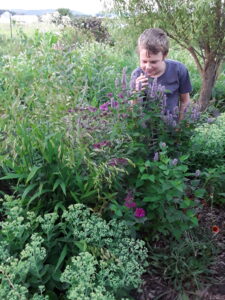

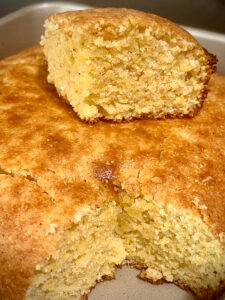


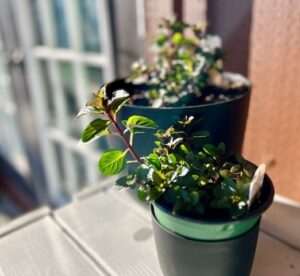






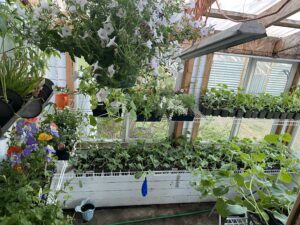

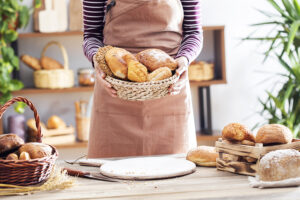
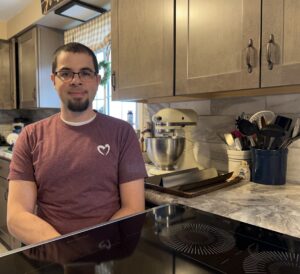
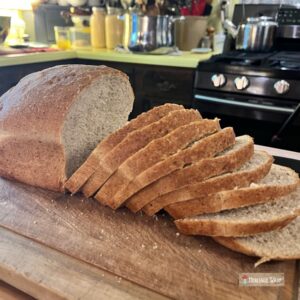

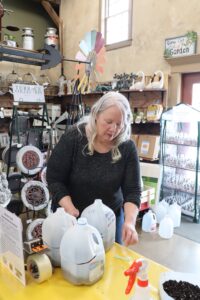
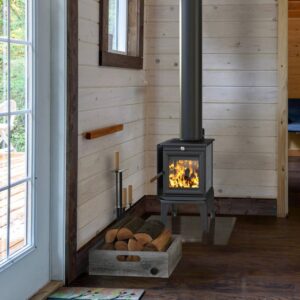




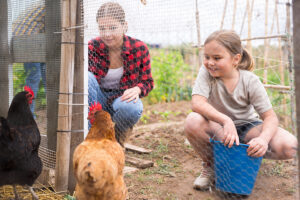
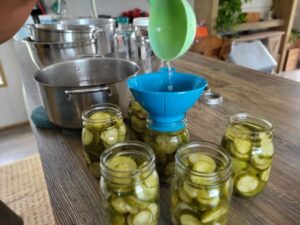

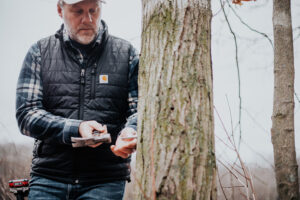
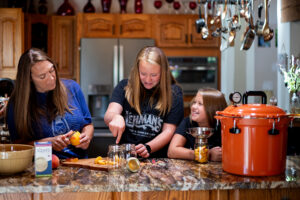


We’re not off grid yet, but used to living in rural areas, power outages are to be expected. We had billing issues with power company and got it shut off for one summer a few years ago. Managed just fine. Things still got done, just differently. And I lost a lot of weight too, and when someone in town asked about it, I said it was the “Farm Chick” diet. They asked what that meant and I told them manual labor.
Manual labor, like solar power is good, free and healthy.